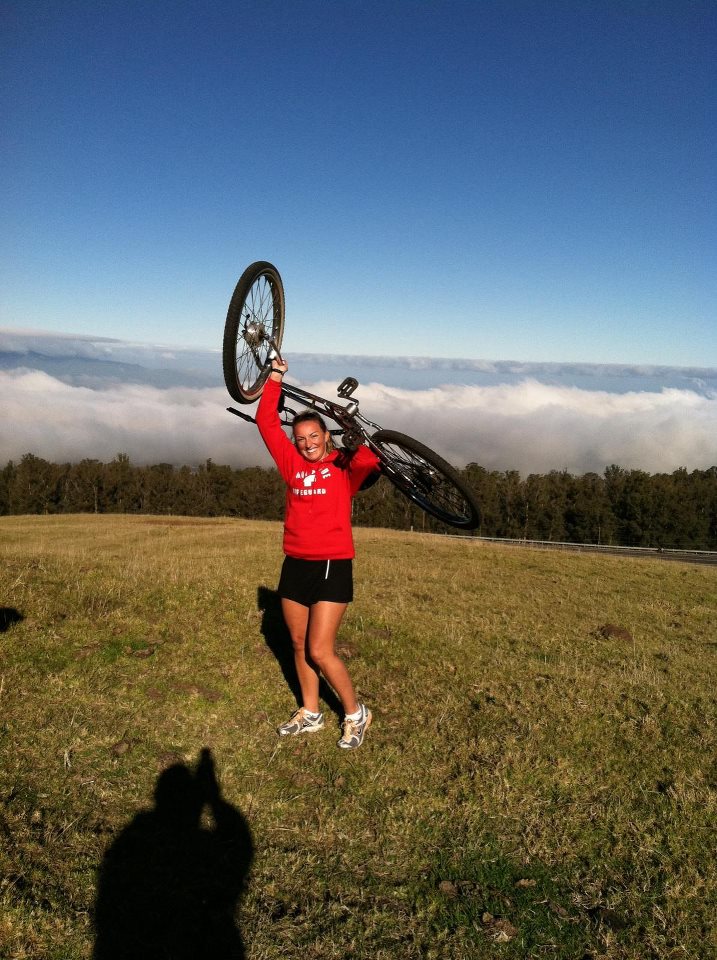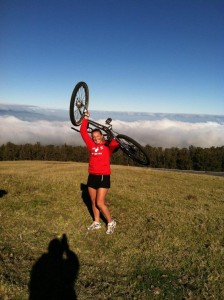Lazy Or Do You Need A Day Off?

 I like to start my day by revving my metabolism. But I’m just like everyone else and some days I just don’t feel like it. I thought I’d share the tips I use to determine whether I’m being lazy or I need a day off.
I like to start my day by revving my metabolism. But I’m just like everyone else and some days I just don’t feel like it. I thought I’d share the tips I use to determine whether I’m being lazy or I need a day off.
- If I’m tempted to press the snooze button and I fall right back asleep, that’s a sign my body needs some extra rest. If I just lay there wide awake, I’m probably just being lazy so I get up.
- When I first wake up, I will check my emails and/or Facebook and the light from my cell usually wakes me up and then I’m ready to go. If that doesn’t work, I may need some more rest.
- If I’m really tired, I will force myself to get up and open the blinds, grab some water and walk around. Usually by moving around, I start to wake up and feel better. If I’m still feeling exhausted, the rest may be more important.
I’ve had days where both my kids were sick and my body felt like it was fighting something so I decided to take a rest day and reserve the energy for my immune system to give it a good fight. A workout will stimulate your immune system but if it’s already being challenged, it can suppress it and take it over the edge.
What do you do when you are sick?
We’re deep into the cold and flu season and if you haven’t caught a bug yet you no doubt have friends, family or colleagues who may be sending germs in your direction. The question is – can you keep exercising when you’re sick? Although more research is needed in this area, the general guideline is that if you have symptoms of a common cold with no fever and all your symptoms are above the neck, moderate exercise like walking should be ok. However, if your symptoms include fever, extreme tiredness, muscle aches or swollen lymph glands, you should refrain from exercise until you get better. When you do start exercising again, progress slowly and gently. And keep in mind, even if you do have to take a few days off because you’re feeling under the weather, it really won’t make that big of a difference to your overall fitness level if you’re consistent with your program the rest of the time.
If you find yourself getting sick often, is there something you can do about it?
We are exposed to germs and viruses all the time so what determines whether you actually get sick or not? The likelihood of you catching the cold or flu depends on a number of factors, including advancing age, whether you smoke or not, high levels of stress, poor nutrition and lack of sleep. It is important to note that exercisers frequently report that they experience less sickness than their sedentary peers. In fact, according to the American Council on Exercise, 61% of 700 recreational runners had fewer colds since they began running while only 4% reported the frequency had increased. During moderate exercise, various immune cells circulate through the body more quickly and are better able to kill bacteria and viruses. So every time you go for a brisk walk, your immune system receives a boost that could increase your chances of fighting off respiratory infections.
But exercise won’t guarantee you won’t get sick. Sometimes, too much exercise can put you at a greater risk for developing a virus. For example, a high percentage of marathoners and triathletes get sick immediately after a big event. The theory is that exercise in generals boosts the immune system but too much exercise at a high intensity may suppress it making you more susceptible to catching viruses.
Here are some general tips to strengthen your immune system and reduce your odds of getting sick:
- Eat Well: The immune system depends on many vitamins, minerals and sufficient caloric intake for optimal functioning. Make sure you consume plenty of fruits and vegetables and drink a minimum of eight glasses of water per day.
- Get lots of Sleep: The American Council on Exercise reports that major sleep disruption (three hours less than normal) has been linked to immune suppression.
- Exercise: Move your body and workout so you receive a regular boost to your immune system.
- Avoid Over-Training: Space vigorous workouts and race events as far apart as possible. Allow for adequate recovery days within your schedule.
Stay healthy and strong!
Sherri McMillan, M.Sc. has been inspiring the world to adopt a fitness lifestyle for over 25 years and has received numerous industry awards including International Personal Trainer and Fitness Presenter of the Year. She is the author of five books including “Go For Fit – the Winning Way to Fat Loss” and “Fit over Forty” and is the featured presenter in various fitness DVDs. She is the owner of Northwest Personal Training in downtown Vancouver and can be seen running, hiking or cycling with her two children, Brianna and Jackson. She can be reached at www.nwPersonalTraining.com or www.ShapeupwithSherri.com
Note: As an avid Columbian reader, you can redeem a 2 week pass at her world-class training studio to help get you started. Contact 360.574.7292 for more details.
